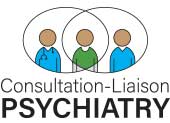Understanding the Breadth and Depth of C-L Psychiatry: Perinatal Psychiatry
Abstract
This article is one of a series coordinated by APA’s Council on Consultation-Liaison Psychiatry and the Academy of Consultation-Liaison Psychiatry.
Perinatal psychiatry is a rapidly evolving field requiring specialized knowledge and skills. The consultation-liaison (C-L) psychiatrist often provides psychiatric care for pregnant and postpartum patients in inpatient and outpatient settings. This requires the ability to navigate the field’s ever-growing literature and to negotiate and manage complex clinical situations in multidisciplinary care settings. The following case illustrates the role that C-L psychiatrists can play in perinatal care.
Case Study

Ms. A is a 26-year-old woman who has had three pregnancies and two live births. She was admitted at 32 weeks gestation for management of influenza. The C-L psychiatrist was called because of signs of benzodiazepine withdrawal and recommended symptom-triggered medication. Ms. A disclosed a history of bipolar I disorder and postpartum psychosis after her second delivery. She reported that she was less symptomatic during treatment with lithium, which she stopped when she became pregnant.
The C-L psychiatrist recommended restarting lithium, discussing the risks/benefits and alternatives as they relate to maternal, fetal, and child health and postpartum risk. The patient was also counseled about the use of benzodiazepines during pregnancy. Ms. A declined lithium and accepted referrals for outpatient substance use and mental health treatment. At 38 weeks, Ms. A presented with preeclampsia, undergoing emergency caesarian section. The obstetrical team called the C-L psychiatrist for “postpartum psychosis.” The patient was confused and inattentive, with visual hallucinations. Laboratory studies indicated a sodium level of 125 mMol/L. She was diagnosed with delirium, which resolved with sodium correction.
Discussion
The risks of untreated mood disorders in pregnancy include limited prenatal care, substance misuse, severe postpartum depression or psychosis, and impaired mother-infant attachment. Risk of psychotropic medications to the fetus must be weighed against the risks of untreated maternal psychiatric illness. As exemplified by Ms. A, C-L psychiatrists who have limited comfort in treating pregnant patients may automatically avoid lithium or other psychotropic medications. When treating pregnant women, the C-L psychiatrist must consider whether organogenesis is complete and whether exposure to untreated mental illness may pose a higher risk to mother and baby than exposure to medication.

Nancy Byatt, D.O., M.B.A., is an associate professor of psychiatry, obstetrics/gynecology, and quantitative health sciences at the University of Massachusetts Medical School, the founding medical director of the Massachusetts Child Psychiatry Access Program (MCPAP) for Moms, and the founding executive director of Lifeline4Moms. Janna Gordon-Elliott, M.D., is an assistant professor of clinical psychiatry at Weill Cornell Medicine/New York-Presbyterian Hospital. Priya Gopalan, M.D., is an assistant professor of psychiatry at the University of Pittsburgh Medical Center (Western Psychiatric Institute and Clinic) and the medical director of consultation-liaison services and chief of psychiatry at Magee-Women’s Hospital.
C-L psychiatrists are also commonly asked to evaluate patients for postpartum psychiatric syndromes. They need to understand the role of prophylaxis in a high-risk but otherwise asymptomatic patient and know indications for continuation or re-initiation of medications. Familiarity with the presentation of postpartum syndromes and an understanding of the use of medications during lactation are imperative. As Ms. A’s case highlights, the C-L psychiatrist must continue to think broadly, even in the narrow context of the obstetrical setting—in this case, by identifying delirium, which improved with medical management.
Obstetrical risks associated with substance use include serious adverse events for mother and baby. C-L psychiatrists may be asked to assist with the management of substance use disorders and withdrawal, to provide brief motivational interventions, and to discuss relapse prevention. Their role may involve management of the teams’ discomfort and countertransference around the psychiatric diagnosis and substance use and detoxification with benzodiazepines from alcohol and benzodiazepine misuse. Medication-assisted treatments (for example, methadone and buprenorphine) are preferred over detoxification to manage perinatal opioid use disorders.
The field of perinatal psychiatry is a highly specialized one that requires up-to-date knowledge and the ability to manage and collaborate effectively in high-acuity interdisciplinary situations. The combination of the high stakes of pregnancy, the complex psychosocial issues that women may be facing during pregnancy, and the uneasiness that can arise when managing pregnant patients with psychiatric issues all contribute to the challenges faced by the C-L psychiatrist working in obstetrical settings. As the field evolves, C-L psychiatrists with perinatal expertise are increasingly finding themselves leading integrated care initiatives in obstetric outpatient settings to address these needs. ■



